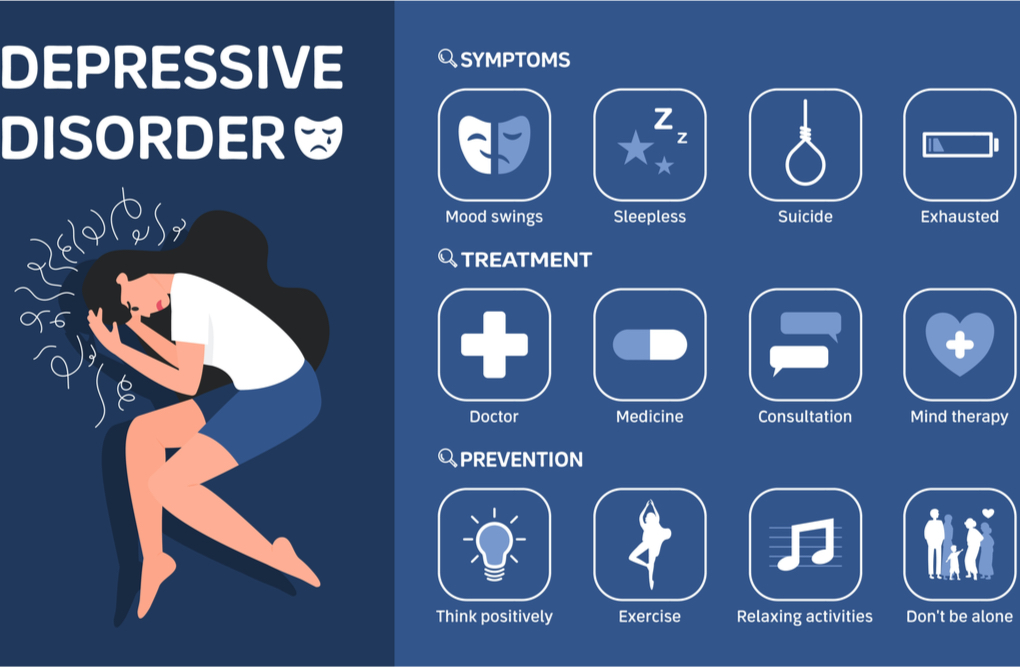
Depression is a serious mood disorder. Several things can cause it, including medical conditions, pain, and genetics. It can also affect a person’s personality.
Psychotherapy, medication and lifestyle changes can all help treat depression. Psychotherapy includes talking with a therapist and learning healthier emotions and behaviors. Medications help change the chemical imbalance in the brain that causes depression.
Psychotherapy
Psychotherapy is a form of depression therapy that involves talking with a mental health professional who has specialized training. It may involve short-term plans to heal immediate issues or long-term treatment for more complex problems. It can be provided by a psychiatrist, social worker, licensed marriage and family therapist, or psychologist. Many of these professionals are covered by Medicare and can be found through online locators or by a referral from your doctor.
The first step in psychotherapy is a diagnostic evaluation. This will include a thorough interview and a physical exam. It will also explore medical history and culture and environmental factors. The evaluation will help to determine the cause of the depression. It is important to rule out any underlying medical condition, such as thyroid conditions or use of certain medications that could cause depression-like symptoms.
Some forms of psychotherapy, such as cognitive therapies and rational emotive behavior therapy, focus on changing maladaptive patterns of thinking that contribute to the depression. Other forms, such as interpersonal therapy and behavioural activation, focus on relationships and ways to improve communication and problem-solving.
Medication
Depression often requires a combination of treatments. Psychotherapy is one option. Other options include changing lifestyle and psychiatric medication. Each type of treatment has advantages and risks.
Medications work by altering the levels of neurotransmitters in the brain. Each person reacts differently to antidepressants. Some are able to stop taking the medications, but others find that their symptoms return.
Your doctor will perform a physical exam and ask questions about your symptoms, thoughts and feelings. They will also check for an underlying medical condition that could be contributing to your depression. They will use the Diagnostic and Statistical Manual of Mental Disorders (DSM-5) to diagnose depression.
Behavioral therapy can help you change the way you think and act. Cognitive-behavioral therapy focuses on identifying and modifying pessimistic evaluations and unhelpful thinking patterns. Interpersonal therapy can help you improve problematic relationships and circumstances that contribute to your depression. Problem-solving therapy helps you take a practical approach to solving your problems.
Lifestyle changes
Depression can be a severe and life-threatening illness, but it is treatable. Getting plenty of rest, eating healthy foods and exercising regularly can help reduce symptoms. You can also use psychological treatment, such as psychotherapy or self-help manuals and websites. Psychological treatments teach you new ways of thinking and coping, and they can be combined with antidepressant medications in mild to moderate depression.
Research shows that lifestyle changes can be as effective as medication for treating mental health disorders. These include exercise, healthy diet, relationships, spirituality and service to others. In addition, researchers have found that recreational activities can help improve mood by promoting pleasure and distracting people from rumination and worry.
If you are suffering from depression, talk to your doctor about treatment options. Medication and therapy can help, but it is important to remember that underlying medical problems should also be treated. For example, if you have diabetes, it may be necessary to get your blood sugar under control.
Support groups
Support groups are a type of depression therapy that connects people with similar experiences. These groups can be found in person or online and are designed to provide emotional and practical support for members. They can also help members develop new skills to cope with their mental health issues.
These groups are usually facilitated by professionals, but the participants determine most of the topics and content of discussion. They can be held in person or over the phone, and may include family members as well as the depressed individual. They can be short or long term and may be offered as part of a treatment program.
A support group can be a great way to get help for depression, especially if you don’t feel comfortable asking your friends and family for assistance. The ADAA provides a list of local and national depression support groups, which can be a good place to start. Many of these groups are free and offer 24/7 access.